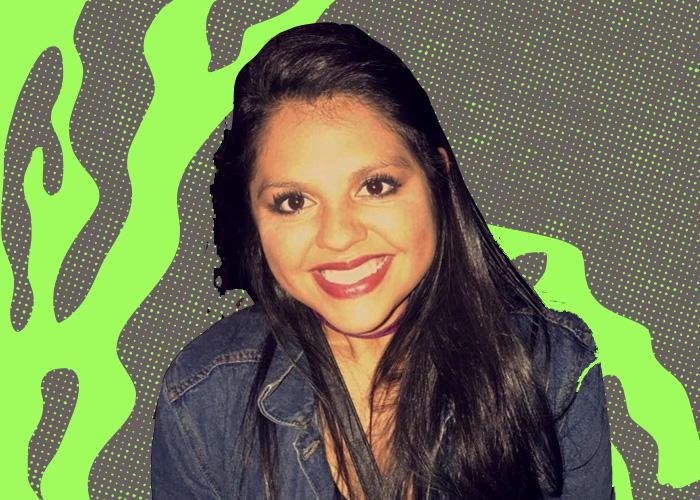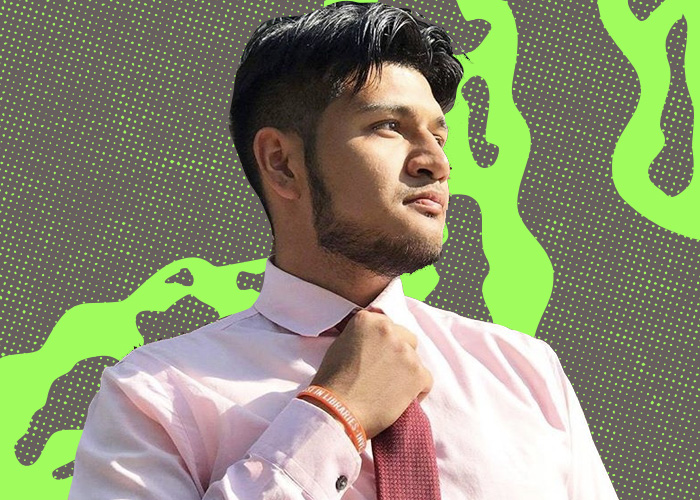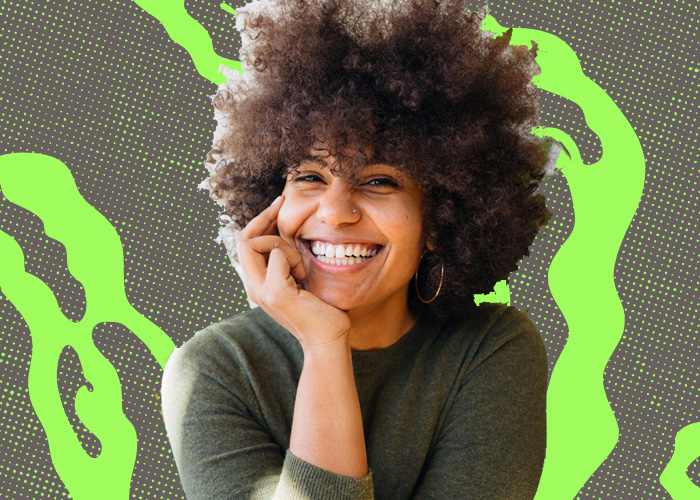1
Maqenzi Hovious

Maqenzi Hovious has always felt like the “other.” Growing up in and around predominantly white towns in southern Indiana, Maqenzi dealt with being one of the few Mexican students in her high school and feeling the stares of people as her Mexican family shopped at the grocery store. She says those experiences have directly influenced her struggle with impostor syndrome throughout the years.
As she finishes up her graduate degree in applied behavior analysis at the University of Louisville, Maqenzi works helping individuals with disabilities – mostly kids and teens with autism – on developing behavior and social and academic skills that will set them up for success. She hopes to become a certified behavior analyst once she graduates in May. Though she’s excelled in her academics and has received positive feedback from her work supervisors, Maqenzi has faced days where she “feels fake” and asks herself if she’s really capable of completing the responsibilities she’s been given. “Sometimes I’ll wake up and I’ll be like I don’t know if I can do this or if a task comes up or something I’m immediately like kind of doubting myself,” she says.
Part of this comes from the way she thinks people perceive her, stemming from her childhood as “the brown girl” in a room full of white people. Maqenzi says it taught her how to read people. She can tell when someone’s not as accepting as others by their stare. “They seem like they can’t believe that I’m in the positions that I am,” she says. “I don’t know if that’s because I’m a woman or if it’s because I’m brown.”
For Maqenzi, impostor syndrome manifests itself in over-preparation. She says she’s the type of person that has to “practice, practice, practice.” “I feel I maybe go overboard in order to try to convince myself that I can do this or I know this information or I can train this person and so I just end up going above and beyond to try to tell myself that I know what I’m doing,” Maquenzi adds.
She didn’t know how to explain this emotion until she came across an article on impostor syndrome about a year ago. Her higher-ups would tell her she just needed more confidence, but she knew that wasn’t it. She sent the article to her supervisor, who has in turn supported her every step of the way.
“She’s been really patient and really helped me see myself the way that she sees me and the way that I should see myself.”
Maqenzi also consulted a counselor about seeing herself as a fraud. Her counselor assured her that impostor syndrome is a real thing. For her, talking with people who are empathetic to her situation, instead of just dismissing her, has helped alleviate this anxiety.
Her struggle with impostor syndrome has also given her a renewed sensitivity helpful in her field of work advising caregivers and people with disabilities. She says, “It’s really helped me to be patient because I need other people to be patient with me, and so if I expect that from other people then I need to also step up and be patient with people that might be struggling or who need my help.”



